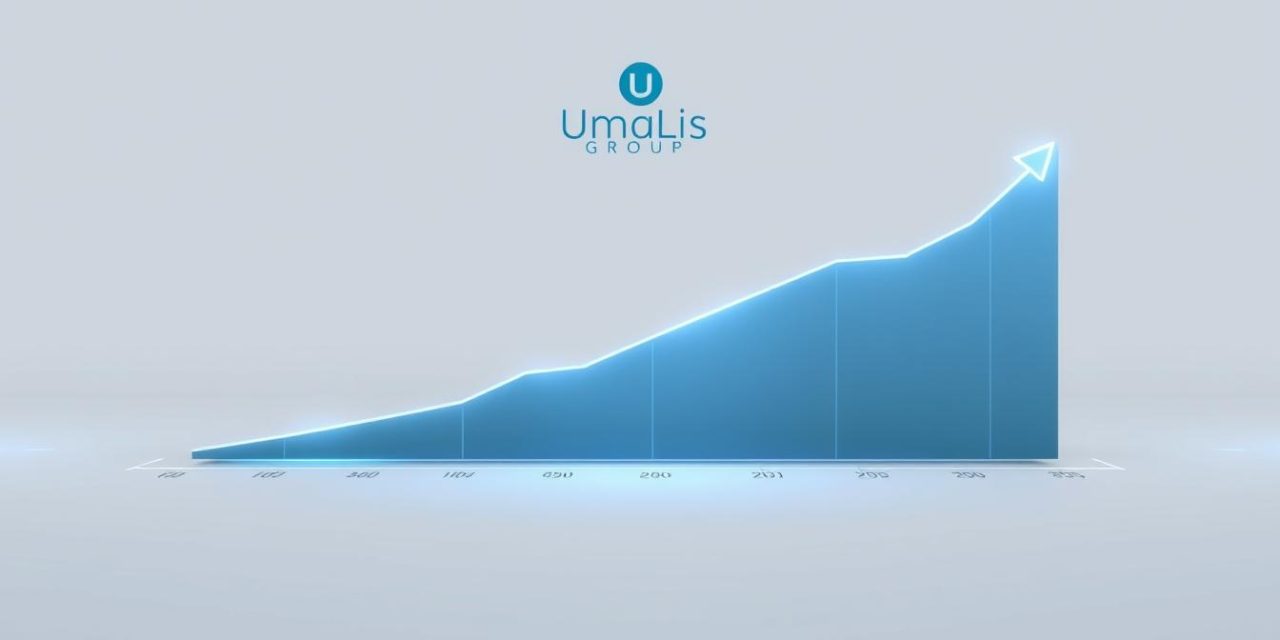As an independent professional, having a strong online presence is crucial for your career stability and security. One key factor in achieving this is understanding and improving your website’s Domain Authority, a metric that predicts your site’s ability to rank on search engine results pages (SERPs).
A higher Domain Authority score indicates a greater ability to rank among competitors. While it’s not a direct ranking factor, it’s a comparative metric that helps evaluate your site’s search performance. By enhancing your website’s Domain Authority, you can improve your search rankings and drive more organic traffic to your digital properties.
Table of Contents
Key Takeaways
- Understand the concept of Domain Authority and its impact on your website’s visibility.
- Learn how to improve your Domain Authority score.
- Discover strategies to outrank your competitors.
- Enhance your website’s authority for better search rankings.
- Drive more organic traffic to your site.
What is Domain Authority?
In the realm of SEO, Domain Authority stands out as a significant indicator of a website’s credibility and ranking potential. Developed by Moz in 2010, it has become a crucial metric for evaluating a website’s online presence.
Definition and Origin
Domain Authority is a search engine ranking score that predicts how likely a website is to rank in search engine result pages (SERPs) compared to its competitors on a scale of 1 to 100. Originally introduced as a successor to MozRank, an indicator of a site’s popularity based on the quality and number of incoming links, Domain Authority has evolved to become one of the most widely used metrics for evaluating a website’s potential search performance.
How Domain Authority is Calculated
The calculation of Domain Authority involves a complex machine learning algorithm that analyzes multiple factors, with particular emphasis on a site’s backlink profile, including both the quantity and quality of inbound links. As Moz explains, « A machine learning model is at the heart of the Domain Authority calculation process, » evaluating a website’s potential ranking in SERPs based on Moz’s link data.
Domain Authority vs. PageRank
Unlike PageRank, which was Google’s official metric but discontinued for public use in 2016, Domain Authority is not a direct ranking factor used by search engines but rather a predictive metric that correlates with ranking potential. It’s essential to understand that Domain Authority serves as a comparative metric rather than an absolute score, making it most valuable when used to measure your site against direct competitors in your specific industry or niche.
For more insights on building a strong backlink profile, you can refer to our comprehensive guide on building quality links.
Why Domain Authority is Crucial for Your SEO

A strong domain authority is the backbone of a successful SEO campaign, enhancing your site’s trustworthiness. It is a critical metric that reflects your website’s credibility and relevance in the eyes of search engines.
Impact on Search Engine Rankings
Domain Authority significantly impacts your website’s visibility in search engine results pages. A higher score correlates strongly with better rankings for competitive keywords. This is because search engines like Google view websites with high domain authority as more trustworthy and authoritative sources of information.
- A strong Domain Authority signals to search engines that your website is a trustworthy and authoritative source of information.
- Domain Authority is intrinsically linked to your site’s backlink profile, as high-quality inbound links serve as « votes of confidence » that boost your perceived authority.
Building Trust and Credibility with Users
Beyond search engine perception, users are more likely to trust and engage with websites that demonstrate authority in their field. This leads to improved user metrics like time on site, pages per session, and conversion rates.
Relationship with Netlinking and Link Profile
The relationship between Domain Authority and SEO performance is cyclical—better rankings lead to more visibility, which often results in more natural backlinks, further strengthening your authority score. Understanding your Domain Authority relative to competitors provides valuable strategic insights.
By focusing on improving your domain authority through quality content and strategic netlinking, you can enhance your website’s performance and increase your online visibility.
What Makes a Good Domain Authority Score
The concept of a « good » Domain Authority score is relative and depends on various factors, including industry and competition. There’s no universal benchmark because Domain Authority is a comparative metric.
Understanding the Scale
Domain Authority operates on a logarithmic scale from 1 to 100. It’s significantly more challenging to improve from 70 to 80 than from 20 to 30, reflecting the increasing difficulty of gaining authority at higher levels.
Industry Benchmarks
What constitutes a strong score varies dramatically by industry, niche, and competitive landscape. For instance, a DA of 30 might be excellent in one sector but inadequate in another.
| Industry | Average DA Score | Competitive Level |
|---|---|---|
| Finance | 60-80 | High |
| Local Business | 20-40 | Medium |
| Technology | 50-70 | High |
Setting Realistic Goals
To set meaningful goals, look at the DA scores of your competitors in your specific niche and aim to surpass them. New websites start with a DA of 1 and increase as they earn authoritative backlinks.
Key Considerations:
- Compare your DA score against direct competitors.
- Understand that Domain Authority is just one component of a comprehensive SEO strategy.
- Aim to incrementally surpass your closest competitors.
How to Check Your Website’s Domain Authority

Understanding your website’s Domain Authority is essential for improving your SEO efforts. Domain Authority is a metric that predicts how well a website will rank on search engines.
Tools to Measure Domain Authority
Several reliable tools are available to check your website’s Domain Authority. Moz’s Link Explorer is the most authoritative source since they developed the metric. You can also use MozBar, a free SEO toolbar that displays Domain Authority, the number of backlinks, and linking root domains directly on your browser.
Analyzing Your Current Score
When analyzing your current Domain Authority score, it’s essential to track changes over time rather than focusing solely on the absolute number. This provides insight into whether your SEO efforts are yielding positive results.
Comparing with Competitors
Competitive analysis should be a key component of your Domain Authority assessment. Regularly monitor your competitors’ scores to understand how your site compares within your specific industry landscape.
Other tools that provide similar authority metrics include Semrush’s Authority Score, Ahrefs’ Domain Rating, and Majestic’s Trust Flow. When evaluating your Domain Authority, also consider related metrics like Page Authority, spam score, and the number of linking root domains.
Effective Strategies to Improve Domain Authority
A strong domain authority is the backbone of a successful SEO strategy, driving both rankings and credibility. To enhance your website’s domain authority, it’s essential to focus on several key areas that contribute to its overall health and visibility.
Creating High-Quality, Link-Worthy Content
Developing high-quality, original content that provides genuine value to your audience is foundational. This content should solve problems or offer unique insights, naturally attracting backlinks. For more insights on creating engaging content, visit our guide on content creation.
Developing Infographics and Shareable Resources
Visual assets like infographics and interactive tools can significantly increase your link acquisition rate. These highly shareable formats are frequently cited and embedded by other websites, enhancing your site’s authority.
| Content Type | Link Acquisition Rate | Shareability |
|---|---|---|
| Infographics | High | Very High |
| Blog Posts | Medium | High |
| Interactive Tools | High | Very High |
Guest Blogging and Collaboration Opportunities
Guest blogging on reputable industry websites allows you to reach new audiences while earning valuable backlinks. Focus on quality over quantity, ensuring your contributions offer substantial value.
Building Relationships with Industry Leaders
Building authentic relationships with industry leaders and influencers can lead to natural link opportunities, mentions, and collaborations that boost your site’s authority and visibility.
By implementing these strategies and maintaining a consistent effort, you can improve your domain authority over time. Remember, the key is to focus on quality content, user experience, and effective netlinking strategies.
Building a Strong Backlink Profile
To improve your website’s visibility and credibility, building a high-quality backlink profile is essential. A well-structured backlink strategy not only enhances your domain authority but also drives relevant traffic to your site.
Quality vs. Quantity of Backlinks
The quality of your backlinks significantly outweighs their quantity. A few links from highly authoritative, relevant websites can have more impact on your Domain Authority than hundreds of low-quality links. When building your backlink profile, prioritize links from websites that are topically relevant to your industry, as search engines value contextual relevance when evaluating link quality.
Identifying and Acquiring High-Authority Links
To acquire high-authority links, focus on creating exceptional content that naturally attracts links from reputable sources. Leverage broken link building by identifying relevant broken links on other websites and offering your content as a replacement, providing value to the linking site while gaining a quality backlink.
Analyzing Competitors’ Backlink Sources
Analyzing your competitors’ backlink sources provides valuable insights into potential link opportunities and effective outreach strategies within your specific industry. Identify the sources of their high-quality backlinks and develop a strategy to acquire similar links.
Removing Toxic Backlinks
Regularly audit your backlink profile to identify and disavow toxic or spammy links that could potentially harm your Domain Authority and trigger search engine penalties. Use tools like Google Search Console to monitor your backlinks and maintain a healthy link profile.
| Backlink Type | Impact on Domain Authority | Action Required |
|---|---|---|
| High-Quality Backlinks | Positive Impact | Acquire More |
| Low-Quality Backlinks | Negative Impact | Disavow |
| Toxic Backlinks | Harmful Impact | Disavow Immediately |
By focusing on quality, analyzing competitors, and maintaining a clean backlink profile, you can significantly enhance your website’s domain authority and improve your search engine rankings.
On-Page SEO Factors That Affect Domain Authority
To boost your site’s domain authority, it’s essential to focus on various on-page SEO elements. A well-structured website with high-quality content can significantly enhance your site’s credibility and visibility in search engine results.
Content Quality and Relevance
Content remains the cornerstone of attracting both visitors and search engines to your site. Publishing comprehensive, well-researched content that satisfies user intent is crucial. It’s advisable to choose keywords that match your theme, audience, and their search intentions. Organizing your content with titles, subtitles, lists, and images improves structure and readability.
Internal Linking Structure
A strategic internal linking structure helps distribute link equity throughout your site, ensuring proper crawling and indexing. It establishes clear topical relationships between your content pieces, enhancing user experience and facilitating navigation. For instance, linking relevant articles or pages can keep users engaged and encourage them to explore your site further.
Updating Existing Content
Regularly updating existing content keeps it fresh and relevant, which can improve user engagement metrics and encourage return visits. This practice indirectly supports domain authority by signaling to search engines that your site is active and provides up-to-date information. For more insights on improving your search engine ranking, you can refer to our detailed guide on boosting your search engine ranking.
Technical SEO Considerations
Technical SEO elements such as site speed, mobile responsiveness, secure connections (HTTPS), and proper schema markup are foundational. They create a solid base that allows your content and backlinks to have maximum impact. Ensuring your site is technically sound is crucial for improving domain authority.
By focusing on these on-page SEO factors, you can enhance your website’s domain authority, making it more credible and visible to both users and search engines.
Common Mistakes That Harm Your Domain Authority
Improving your website’s domain authority requires avoiding certain common mistakes that can harm your online presence. Domain authority is a critical factor in determining your website’s credibility and search engine rankings. By understanding and avoiding common pitfalls, you can strengthen your website’s authority and improve your online visibility.
Purchasing Low-Quality Backlinks
One of the most damaging mistakes for domain authority is purchasing low-quality backlinks. Search engines have become sophisticated at identifying artificial link schemes, and sites engaging in such practices may face penalties. Instead, focus on acquiring high-quality backlinks from authoritative sources.
Neglecting Technical SEO
Neglecting technical SEO issues can create barriers that prevent search engines from properly crawling and indexing your site. Common technical SEO issues include slow page speed, broken links, duplicate content, and poor mobile optimization. Addressing these issues is crucial for maintaining a strong domain authority.
Ignoring Content Updates
Failing to regularly update existing content can lead to outdated information and declining relevance. Both users and search engines view sites with stale content as less authoritative over time. Regularly updating your content can help maintain your website’s relevance and authority.
Over-Optimization and Keyword Stuffing
Over-optimization techniques, such as keyword stuffing, excessive exact-match anchor text, or manipulative internal linking patterns, can trigger search engine penalties. These practices can reduce your site’s perceived authority and negatively impact your search engine rankings.
Other common mistakes include ignoring the quality of referring domains, implementing drastic site changes without proper redirects, focusing exclusively on domain authority while neglecting user experience metrics, and expecting immediate results from domain authority improvement efforts. By avoiding these mistakes, you can improve your website’s domain authority and enhance your online presence.
Conclusion
By grasping the concept of domain authority and its significance in SEO, you can develop a robust strategy to elevate your website’s performance. As we’ve explored, domain authority is a crucial indicator for measuring and improving your website’s visibility, traffic, and ultimately its conversions.
To boost your domain authority, focus on three essential elements: quality content, an optimized user experience (UX), and an effective netlinking strategy. It’s crucial to remember that improving domain authority requires time and persistence; it’s not an instantaneous process.
Some key takeaways to keep in mind:
- Improving your Domain Authority requires a multifaceted approach that includes creating high-quality content and building a strong backlink profile.
- Domain Authority is a comparative metric; focus on outperforming your direct competitors rather than achieving a specific score.
- Regular monitoring of your Domain Authority provides valuable insights into the effectiveness of your SEO strategy.
By implementing the strategies outlined in this guide and avoiding common pitfalls, you can steadily improve your website’s authority, visibility, and performance in search engine results, ultimately achieving your SEO goals and establishing yourself as a leader in your sector.
FAQ
What is a good Domain Authority score for my website?
A good score varies by industry, but generally, a score above 50 is considered strong. For new websites, a score between 1-20 is normal.
How often should I check my website’s Domain Authority?
It’s a good practice to check your Domain Authority regularly, such as every 3-6 months, to track changes and adjust your SEO strategies accordingly.
Can I directly influence my website’s Domain Authority?
While you can’t directly control Domain Authority, you can improve it by creating high-quality content, building a strong backlink profile, and optimizing on-page SEO factors.
How does Domain Authority impact my website’s search engine rankings?
Domain Authority is one of many factors that influence search engine rankings. A higher Domain Authority score can improve your website’s credibility and trustworthiness, potentially leading to better rankings.
What are some common mistakes that can harm my website’s Domain Authority?
Common mistakes include purchasing low-quality backlinks, neglecting technical SEO, ignoring content updates, and over-optimizing your content.
How can I improve my website’s backlink profile?
Focus on acquiring high-quality, relevant backlinks from authoritative sources by creating link-worthy content, guest blogging, and building relationships with industry leaders.
Is it necessary to remove toxic backlinks from my website?
Yes, removing toxic backlinks is crucial to prevent harm to your website’s Domain Authority and search engine rankings. Regularly audit your backlink profile to identify and remove low-quality links.





